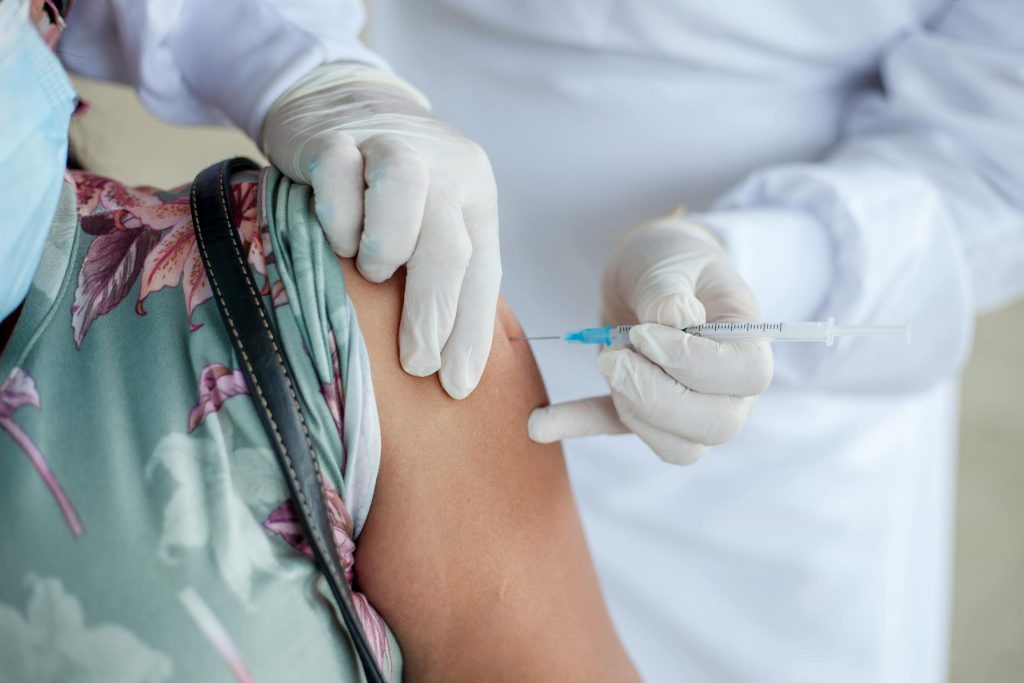
A 62-year-old German man has sparked curiosity and raised questions about exceeding recommended vaccination protocols. This individual, whose name remains confidential due to privacy laws, defied national guidelines by receiving a staggering 217 Covid-19 vaccine shots over a 29-month period. This translates to an average of one vaccination every four days.
An Unorthodox Experiment:
This case essentially turned the man into an inadvertent human experiment, offering valuable insights into the immune system’s response to repeated vaccinations against the same pathogen. A recent study published in The Lancet Infectious Diseases documented his case. While the “hypervaccination” didn’t lead to any adverse health effects, it also didn’t significantly enhance or weaken his immune response.
Breaking Down the Numbers:
The study details the man’s immunization history:
- First Dose: June 2021
- Total Shots: 217 (between June 2021 and November 2023)
- Confirmed Shots: 134 (verified by prosecutors and vaccination centers)
- Self-Reported Shots: 83
Unanswered Questions and Concerns:
Dr. Emily Happy Miller, a medical professional not involved in the research, emphasizes the unusual nature of this case. Here’s why:
- Deviation from Guidelines: The man clearly disregarded recommended vaccination schedules.
- Uncertain Cause of Covid-Free Status: While the man hasn’t contracted Covid-19 (based on testing), the study acknowledges it’s unclear if his hypervaccination regimen is the sole reason.
Importance of Context:
Dr. Kilian Schober, the study’s senior author, stresses that this is an individual case and the findings shouldn’t be generalized. He also discourages hypervaccination as an immunity-boosting strategy.
A Closer Look at the Man’s Journey:
The study delves into the man’s vaccination journey:
- Initial Phase (June 2021): He received 16 shots at various centers in Saxony, Germany.
- Escalation (2022): He significantly increased the frequency, receiving shots in both arms nearly every day in January (totaling 48 that month). He continued with high numbers in February and March.
- Suspicions Arise (March 2022): Red Cross staff in Dresden noticed his pattern and alerted other centers, even advising them to contact authorities if they saw him again.
- Police Involvement (Early March 2022): He was apprehended at a vaccination center in Eilenburg due to suspicion of selling vaccination cards to others (during a time when proof of vaccination was crucial for access to public places and travel).
- Investigation and Continuation (May 2022): Though the public prosecutor investigated him for potentially issuing unauthorized vaccination cards and document forgery, no charges were ultimately filed. The man, against medical advice, continued receiving shots, reaching 213 by the time researchers contacted him.
Investigating the Effects:
The researchers, upon learning about the man through news reports, contacted him through the prosecutor in May 2022. Here’s what they found:
- Blood Analysis: No abnormalities linked to hypervaccination were detected.
- Immune System Evaluation: Researchers analyzed markers related to his adaptive immune system, which learns to recognize specific pathogens throughout life. Here’s a breakdown:
- Adaptive Immune System Components: T cells and B cells are the two main cell types.
- Potential Effect of Chronic Exposure: In chronic illnesses like HIV and hepatitis B, immune cells can become depleted due to frequent exposure to the pathogen, hindering their effectiveness. Hypervaccination, in theory, could have a similar effect.
- Study Findings: The study revealed that hypervaccination in this case increased the quantity (number of T cells and B cell products), but it didn’t impact the quality of the adaptive immune system response.
Vaccine Variety:
The man received a total of eight different vaccine formulations, including mRNA vaccines from Pfizer/BioNTech and Moderna, a vector-based vaccine from Johnson & Johnson, and a recombinant-protein vaccine from Sanofi.
Safety Observations:
Dr. Schober, in a press release, highlighted the observation that despite the hypervaccination, no significant side effects were observed. This suggests a good level of tolerability for the vaccines used.
Important Caveats:
Dr. Miller emphasizes that while intriguing from a scientific standpoint, this is a singular case study, and its findings shouldn’t be universally applied. Public health recommendations, based on larger, controlled studies, are what people should follow.
The Takeaway: Following Guidelines for Optimal Protection
- Current US guidelines, as outlined by the CDC, recommend COVID-19 vaccination for everyone 6 months and older, with an additional dose for those 65 and older.
- This case study serves as a reminder to follow recommended vaccination schedules for optimal protection against COVID-19. Consulting with a doctor is crucial for personalized guidance.
Looking Forward: Research and Responsible Vaccination
This unique case, while raising eyebrows, contributes to scientific understanding of hypervaccination’s effects. However, it underscores the importance of following established vaccination protocols for the health and safety of individuals and communities. By adhering to recommended schedules, we can ensure the best possible protection against COVID-19.


